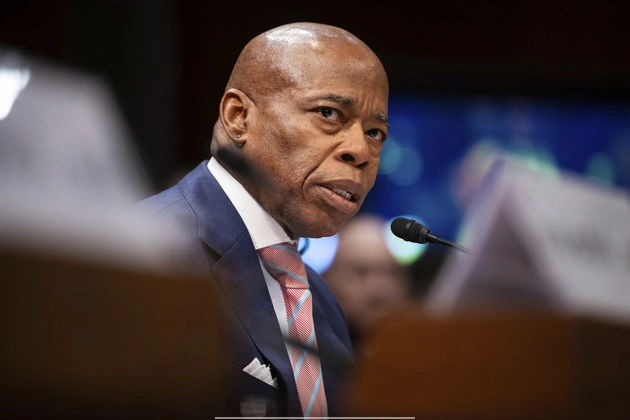
NEW YORK — In a recent meeting with Donald Trump’s incoming border czar, Eric Adams underscored his unwavering stance on addressing violent crimes committed by undocumented immigrants. The New York City mayor made it clear that the city will not tolerate such acts, emphasizing that this applies to both citizens and non-citizens.
During the meeting at Gracie Mansion, Adams expressed solidarity with Tom Homan, Trump’s appointee tasked with implementing deportation plans. Despite the seemingly unusual alliance between the Democratic mayor of a sanctuary city and a key figure in the GOP administration, Adams remained steadfast in his position.
Adams reiterated his commitment to upholding sanctuary laws while acknowledging the need to prevent violent offenders from taking advantage of these protections. He proposed potential changes to facilitate cooperation between local and federal authorities, including a streamlined process for transferring individuals accused of serious crimes to the federal justice system.
One key aspect of the discussion was the shared goal of targeting individuals involved in violent acts, regardless of their background. Adams indicated that Homan supported this approach, signaling a mutual understanding on the issue.
While current municipal laws restrict the release of detainees to ICE custody without proper authorization, Adams’ opponents and advocacy groups criticized his rhetoric as anti-immigrant. Despite the backlash, Adams remained resolute in his efforts to ensure public safety while navigating the complex landscape of immigration policies.
As the debate over sanctuary city practices continues, Adams faces scrutiny from various quarters, including political rivals and activist organizations. The mayor’s decisions regarding law enforcement collaboration with federal agencies have sparked controversy, with some questioning his motives and priorities.
Ultimately, Eric Adams’ approach to addressing violent crime among undocumented immigrants reflects his commitment to public safety and the rule of law. While opinions on his strategies may vary, his dedication to protecting all residents of New York City remains a central tenet of his governance.















